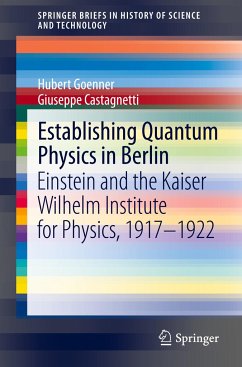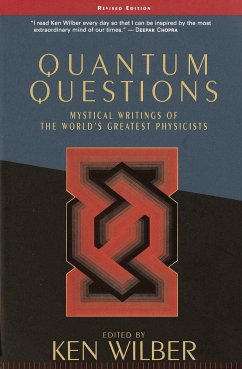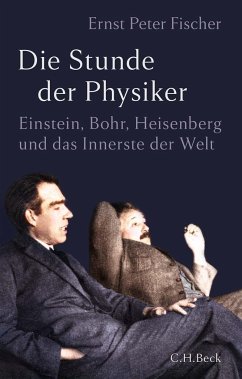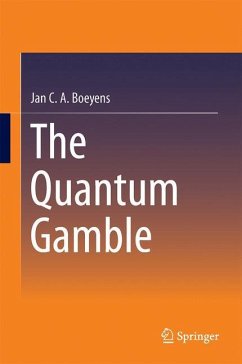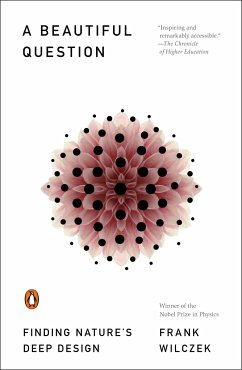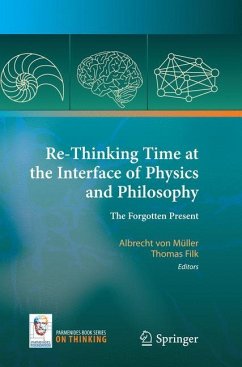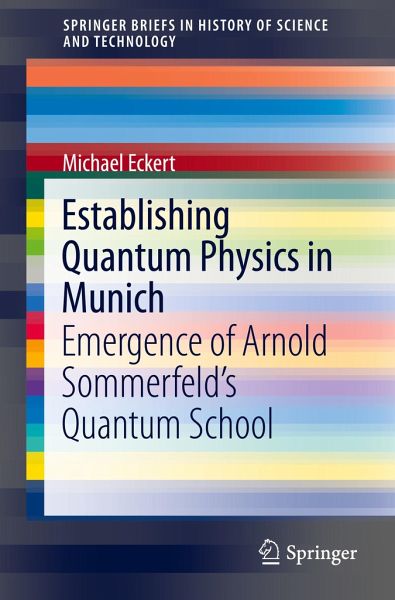
Establishing Quantum Physics in Munich
Emergence of Arnold Sommerfeld's Quantum School

PAYBACK Punkte
25 °P sammeln!
This book traces the history of Arnold Sommerfeld's famous "nursery of theoretical physics" at the University of Munich and demonstrates the centrality of developing personal and institutional networks for the emergence of quantum theory. Sommerfeld, originally a mathematician with little interest in theoretical physics, was a somewhat unlikely choice for a chair of theoretical physics when he was appointed in 1906. However, he quickly reoriented his research focus towards physics, forstering a keen interest in experimental research. Possibly even more important for the development of quantum ...
This book traces the history of Arnold Sommerfeld's famous "nursery of theoretical physics" at the University of Munich and demonstrates the centrality of developing personal and institutional networks for the emergence of quantum theory. Sommerfeld, originally a mathematician with little interest in theoretical physics, was a somewhat unlikely choice for a chair of theoretical physics when he was appointed in 1906. However, he quickly reoriented his research focus towards physics, forstering a keen interest in experimental research. Possibly even more important for the development of quantum theory in the coming years was his exceptional talent as a charismatic teacher and prolific networker, which turned Munich into a central node in the fast-growing network of quantum physicists in the 1920s. It is no coincidence that the two most talented "child prodigies" of 1920s quantum physics, Wolfgang Pauli and Werner Heisenberg, were his students, nor that by the end of the decade about a dozen of Sommerfeld's former disciples held chairs in theoretical physics. The book is directed at historians of science and physics, as well as all those interested in the history of science diplomacy and networking.
The book is part of a series of publications on the early network of quantum physics. These works emerged from an expansive study on the quantum revolution as a major transformation of physical knowledge undertaken by the Max Planck Institute for the History of Science and the Fritz Haber Institute (2006-2012). For more on this project, see the dedicated Feature Story, The Networks of Early Quantum Theory, at the Max Planck Institute for the History of Science, https://www.mpiwg-berlin.mpg.de/feature-story/networks-early-quantum-theory
The book is part of a series of publications on the early network of quantum physics. These works emerged from an expansive study on the quantum revolution as a major transformation of physical knowledge undertaken by the Max Planck Institute for the History of Science and the Fritz Haber Institute (2006-2012). For more on this project, see the dedicated Feature Story, The Networks of Early Quantum Theory, at the Max Planck Institute for the History of Science, https://www.mpiwg-berlin.mpg.de/feature-story/networks-early-quantum-theory





